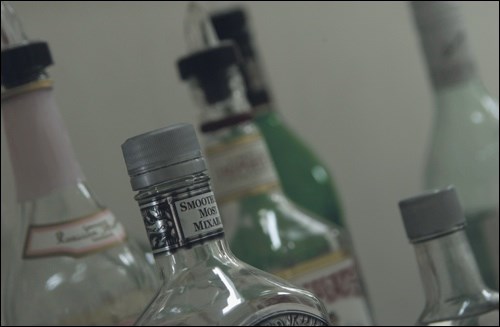Interprovincial alcohol distribution in Canada has always been a nightmare. For our wineries, breweries and spirit makers, selling alcohol to Americans is easier than selling to consumers outside their own province.
Many Canadian alcoholic products like wines, beers and spirits have won international prestigious awards but can’t be sold to most Canadians.
It’s simply ridiculous.
But a private member’s bill in Ottawa is offering Canadians a renewed chance to ‘free the beer.’
Canadians held their breath with the Gerard Comeau case a few years ago. In 2012, Comeau was pulled over and fined more than $292 for bringing more than the 12-pint limit of beer back to New Brunswick from neighbouring Quebec.
The case went to the highest court in the country and the Supreme Court of Canada ruled in 2018 that the fine was constitutional, giving provinces reason to protect their markets.
Conservative MP Dan Albas has other plans. In December, he presented and tabled a private member’s bill to amend the Canada Post Corporation Act so Canadian-made wine, beer and spirits could be accessible in a direct-to-consumer program, with shipping through Canada Post, between provinces.
Only four provinces now allow direct-to-consumer shipping of alcoholic products: Manitoba, Saskatchewan, Nova Scotia and British Columbia. Most provinces, including highly-protective Quebec and Ontario, are very much against opening their markets.
The genius of this can’t be underscored enough. If Albas gets his way, the bill will prohibit Canada Post, a federal Crown corporation, from refusing direct delivery to consumers of beer, wine or spirits originating in another province. Trade barriers upheld by the Supreme Court between provinces would be secondary.
Provincial governments would have the right not to adhere to the new regime. But if they do, businesses in their own province won’t be allowed to sell outside their province either. Opting out goes both ways.
Provinces opting out would obviously need to explain to their constituents why interprovincial restrictions will remain.
Some great wines, beers and spirits are produced in Quebec, Nova Scotia, Prince Edward County and Niagara on the Lake in Ontario, the Prairies and British Columbia.
Understandably, this bill received little or no media attention because of the pandemic and our focus on vaccines. But helping struggling businesses is not just about providing financial assistance during COVID-19. It’s also about empowering the economy and helping businesses grow.
Today’s robust online commerce environment represents a great chance for the federal government to give wineries and brewers in smaller provinces the ability to prosper and have access to larger domestic markets.
According to some industry estimates, the global online alcohol market was at $35 billion in 2020. In Canada, $350 million to $400 million worth of booze was sold online last year, up 75 per cent from 2019.
Food distribution rules have changed with COVID-19. Consumers have more choice than ever, thanks to online ordering. Supply chains are more open and democratic than ever, which is why this bill is timely and utterly needed.
But that’s just a theory. As usual, politics will get in the way. This bill likely won’t survive a spring election, or the wrath of larger provinces like Ontario and Quebec. Both the LCBO in Ontario and SAQ in Quebec are influenced by the growing emphasis on getting consumers to buy local foods more often. It’s hard to argue with a perspective like that. But a Canadian product, for many, is indeed local.
Nevertheless, if we can ‘free the beer’ this time, it will be a miracle. So don’t hold your breath.
Dr. Sylvain Charlebois is senior director of the agri-food analytics lab and a professor in food distribution and policy at Dalhousie University.
www.troymedia.com
Ìý




